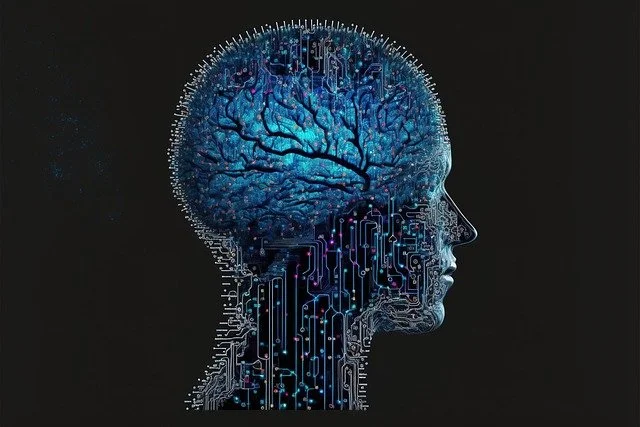
EMDR Therapy in Bozeman
How can EMDR Therapy Help You?
EMDR (Eye Movement Desensitization and Reprocessing) therapy is a central part of our holistic approach to healing trauma at Bozeman Counseling Center. We understand that trauma isn’t just stored in memories. It lives in the body; shaping how you think, feel, and react. So our team addresses the mind, body, and nervous system together. If you’re struggling with trauma or PTSD, you’ve probably heard from friends or social media about the remarkable healing potential of EMDR therapy.
The reality is, EMDR is one of the few trauma treatment methods that truly lives up to the hype. This mind-body approach to therapy produces results because it actually helps to retrain your nervous system.
EMDR does this by helping you target distressing experiences at the root level, enabling you to reprocess and file those painful memories away where they no longer have power over you. At the same time, it calms the nervous system, reducing the emotional intensity and physical reactivity activated when you run into stressors or reminders of the traumatic experience. That, in turn, allows you to feel safer, calmer, and more in control.
Bozeman Counseling Center provides EMDR Therapy in Bozeman. Contact our team, or schedule an appointment today
Who Can EMDR Treatment Help?
At Bozeman Counseling Center, we specialize in using EMDR to help adults process traumatic or distressing experiences while minimizing the impact of those experiences on daily life. In addition to trauma and PTSD, our EMDR therapists routinely support clients struggling with anxiety, panic attacks, grief, depression, self-worth issues, relationship challenges, and stress from various life changes.
We also specialize in working with those with ADHD who have survived trauma, recognizing how these challenges can interact and affect focus, relationships, and self-esteem. EMDR can help untangle these layers, making it easier to access your strengths, manage daily life with ease, and move forward with confidence and resilience.
Whatever your situation or needs are, our EMDR counselors create a supportive, individualized healing process that meets you where you are. While we’re at it, we’ll incorporate effective tools for enhancing emotional regulation, nervous system balance, and self-compassion so you have all you need to find both immediate and long-term relief.
Getting Ready For The EMDR Process
The first session is all about getting to know you—what you want to work on, how you’ve been coping, and what your previous experiences with therapy have been like (if any). While sharing your story, your therapist will assess where you are emotionally and whether your nervous system is ready to participate in EMDR therapy.
We do this because EMDR works on the mind-body level where our natural fight-or-flight instinct resides. Therefore, we want to make sure that you feel safe and at ease as we approach the task of addressing potentially uncomfortable experiences, memories, or bodily sensations. To get you into that “window of tolerance,” we’ll equip you with tried-and-true coping skills and grounding strategies for building resilience and increasing your capacity to self-regulate.
How Does EMDR Support Change And Healing?
When something traumatic or highly stressful happens, your brain can store it in a “raw” form—complete with the emotions, thoughts, and bodily sensations from that moment. That’s why it can feel like you’re constantly reliving the past—because in a very real way, you are.
In EMDR therapy, we gently guide you to briefly recall these memories while using rapid eye movements, foot-tapping, or alternating tones to activate bilateral brain stimulation. This bilateral process helps your brain re-file the traumatic memory, forming a more adaptive relationship with the past so reminders no longer trigger the same intense reactions.
Over time, clients often notice the memory loses its emotional charge, and the experience feels more like something that happened in the past versus something that is happening now.
How Does EMDR Stack Up Against Other Treatment Models?
It really depends on the presenting issue, but there is a ton of research out there supporting its efficacy. In fact, some studies suggest an 84 to 100 percent success rate for treating single-incident trauma. Even multiple traumas treated with EMDR saw a 77 percent success rate. Learn more about EMDR therapy here.
In many cases, Eye Movement Desensitization and Reprocessing can quickly resolve “Big T” trauma, like a car accident or military combat. However, complex trauma and other challenges may require additional therapy interventions. For instance, we might use Cognitive Behavioral Therapy (CBT), Attachment Theory, Somatic Techniques, Mindfulness, and Internal Family Systems (IFS) to complement EMDR.
Combined, these strategies help mitigate the ongoing influence of trauma and get you into that window of tolerance—into a state of equilibrium where EMDR works best. By alternating back and forth between talk therapies and EMDR, we’re actually improving the effectiveness of EMDR and the healing process as a whole because we’re attacking trauma from multiple angles.
How Can EMDR Help Where Other Treatment Options Fall Short?
EMDR can help when other therapy models haven’t provided relief because it works directly with how the brain stores and processes distressing memories, not just how a client thinks or feels about them. Traumatic or overwhelming experiences can remain “stuck” in the nervous system, triggering intense emotions, negative beliefs, and physical reactions that persist despite logic, insight, and coping skills.
Through bilateral stimulation, EMDR activates the brain’s natural healing process, allowing memories to be reprocessed and properly filed away so they lose their emotional charge. What’s more, this approach doesn’t require you to retell every detail, making the therapeutic process itself less overwhelming.
As your brain integrates the memory in a healthier way, you’ll experience sustained symptom relief, improved emotional balance, and a renewed ability to navigate life on your own terms.
What Are Some Tangible Benefits Of EMDR Therapy?
This holistic approach to therapy enables you to correct how the brain stores distressing memories so they no longer trigger overwhelming emotions, negative thoughts, or physical reactions. This often results in greater calm, improved emotional regulation, and sustained relief from symptoms, such as anxiety, panic attacks, nightmares, and hypervigilance.
EMDR also enables you to replace harmful cognitions, like I’m not safe or I’m not enough, with healthier, more empowering beliefs. You’ll gain stronger coping skills and enhance your resilience, confidence, and self-awareness.
Over time, you’ll notice your relationships improving and your mind feeling clearer as the past grows more and more distant. You’ll make wiser decisions without fear influencing your behaviors—and you’ll increase your ability to stay grounded and present in daily life, even in situations that once felt triggering or unmanageable.
A Little About Our History And Background In EMDR
Since Bozeman Counseling Center was founded, EMDR has been a cornerstone of our therapeutic work. From the start, our EMDR specialists have helped clients heal from trauma, anxiety, grief, and other challenges using this powerful modality.
We were inspired to integrate EMDR into our toolkit because the science involved in how it helps the brain and nervous system heal from trauma is both fascinating and empirically validated. As brain and nervous-system-based trauma therapists, we seek methods that create deep, sustainable change by addressing the root cause of distress.
All of our EMDR clinicians receive training from EMDRIA-approved trainers, ensuring the highest professional standards. Our staff also participates in EMDR-specific supervision as well as ongoing consultation with fellow EMDR therapists.
This deep commitment to advanced training, skill refinement, and collaborative support allows us to provide highly effective, individualized care. Our clients benefit from the expertise of compassionate professionals dedicated to guiding them toward meaningful, lasting change and a renewed sense of safety, confidence, and strength.
When You’re Ready For Real Change—We Can Make It Happen
If you long to feel safe, confident, and present in your life once again—if you’re looking for growth and healing where previous therapy stalled—EMDR therapy can help you find relief sooner than you might expect.
In the short term, you can feel more grounded and in control of your thoughts, feelings, and life in general. At the same time, you’ll be building resilience, strengthening coping skills, and replacing negative thoughts with positive perspectives that allow you to thrive on your own.
To schedule your free, 15-minute consultation, or to set up your first appointment, please Contact Us or call (406) 624-6007.
Bozeman Counseling Center offers online and in-person EMDR therapy for clients in Bozeman, Belgrade, Livingston, and throughout the state of Montana.
Recent Blog Posts Related to EMDR Therapy
EMDR Therapy in Bozeman, MT: Northside Office
950 Stoneridge Dr. Suite 1, Bozeman, MT 59718
EMDR Therapy for in Bozeman, MT: Southside Office
985 Technology Blvd. Ste 101, Bozeman, MT 59718




